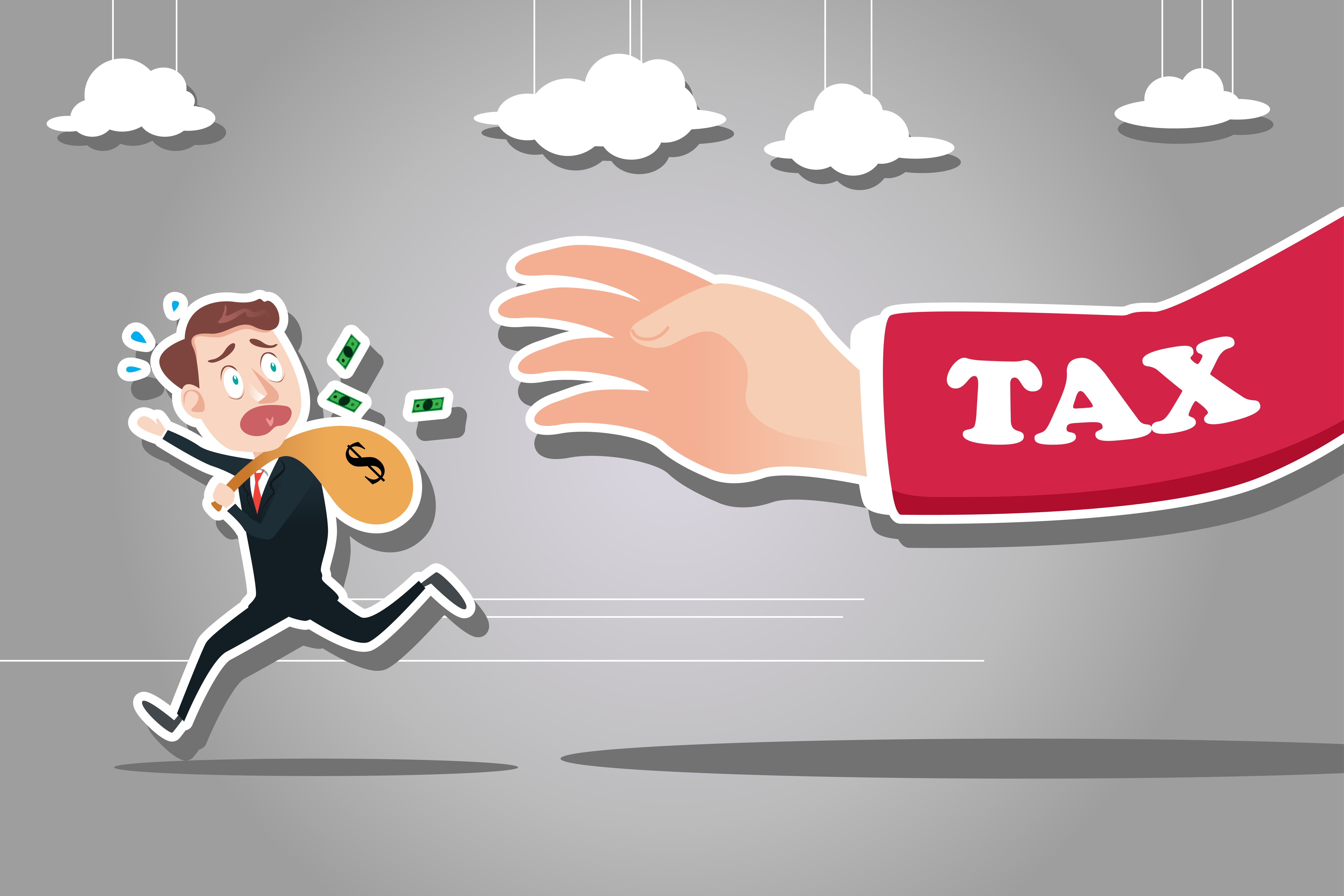Decoupling is a uniquely real estate buzzword, just like “sell one, buy two”. Although it’s often bandied about as a way to avoid paying the Additional Buyer’s Stamp Duty (ABSD) when buying a second property, decoupling isn’t a sure-win.
In fact, there are scenarios where decoupling would cost the buyers even more than the ABSD. Fortunately, most property agents, lawyers, etc. will catch on and warn their clients early. But it’s good to know how decoupling can sometimes cost you more.

First, what is decoupling?
Decoupling is when you sever the joint ownership of a property, so that you can purchase another one as a first-time home buyer. For example, if you and your spouse are co-owners of a condo, you could decouple by buying over your spouse’s share in the property, or vice versa.
Although decoupling also involves refinancing/restructuring the loan to be under one spouse, it’s important to note that this is not the same as restructuring your home loan to remove a co-borrower, something that doesn’t require one of you to buy over the property share of the other.
The main reason to decouple is to avoid the ABSD. With the latest round of cooling measures taking effect on 16 December 2021 onwards, the ABSD rate is now 17% on the second property for Singapore Citizens (25% for Permanent Residents).
If your spouse were to fully transfer the property to you (or vice versa), they would no longer officially own a property. This makes it possible for them to purchase a property as if they were a first-time buyer, without incurring the ABSD if they’re Singaporean.
Plus, this allows the non-owner to obtain a higher loan quantum for a property purchase, under the current loan-to-value (LTV) limits.
Now, let’s talk about how much money it takes to decouple.
The main costs of decoupling to note are:
- Conveyancing fees
- Stamp duties
- Prepayment penalties
- Refund to CPF
1. Conveyancing fees
The conveyancing fees for decoupling can range between S$5,600 and S$6,500. If you’re engaging a mortgage broker in the process, they can usually help you find the cheapest options (the mortgage broker is one of the few things about all this that’s free).
2. Stamp duties
This is where it gets complicated.
First, the Buyer’s Stamp Duty (BSD) applies to the share of the property being transferred. We explain how the BSD is calculated in this other article. When your spouse buys over your share of the property, or vice versa, they must pay the BSD on the share being transferred.
So if your existing property is valued at S$1 million, and you have equal ownership (50/50 split), the spouse taking over the existing property would pay the BSD on the S$500,000 share. This comes to S$9,600 in this case.
Note that stamp duties always apply to the higher of the property price or valuation. So you can’t cheat and try to sell your share for S$1; your spouse must at least buy over your share at market value.
Stamp duties may not end with the BSD.
If your spouse is buying over your share and he/she is not a Singapore Citizen and/or already owns another property, you’ll also need to factor in the Additional Buyer’s Stamp Duty (ABSD).
For instance, Permanent Residents pay 5% for the ABSD even on their first property purchase. So, if your spouse is a PR and buys over your share of the S$1 million unit, they would pay an ABSD of S$25,000 (5% of S$500,000).
If your spouse already owns another property, they would pay 17% for the ABSD if they’re Singapore Citizen, or 25% if they’re PR. This works out to an additional S$85,000 or S$125,000, respectively, to buy over your share of the S$1 million property.
Finally, you also need to consider the Seller’s Stamp Duty (SSD) if decoupling is done within the first three years of the property purchase. The amount is 12% of the price within the first year, 8% within the second year, and 4% within the third year. There’s no SSD payable after that, so most couples will wait and hold on to the property for at least three full years before decoupling.

3. Prepayment penalties
Whether this is a factor depends on your home loan package. Most home loans impose prepayment or early redemption penalties, at least in the first three years. This is an added fee for trying to pay off your home loan early.
Unfortunately, when you refinance the loan, you need to pay off the existing loan, and create a new one for your spouse who is taking over the property. Paying off the old loan this way can trigger the prepayment penalty, which is usually 1.5% of the outstanding amount.
Check the terms and conditions of your home loan. The prepayment penalty usually applies within the first three years (or as long as five years for some loans).
4. Refund to CPF account
As with any property purchase, you must return the amount you used from CPF with accrued interest when you sell the property. It’s important to know this amount, as you could end up with zero cash proceeds.
For example, say you’re obliged to return S$170,000 to CPF (check your account online to see how much you owe) after selling your share of the property to your spouse. However, the proceeds only come to around S$160,000. Although you’re not required to top up the S$10,000 shortfall if you sold your share at market value or above, it does mean all the cash is going back into your CPF account.
Remember, to buy your next property, you will need to pay at least 5% of the price in cash. That might not be possible if your funds get all locked up in your CPF account. So, careful financial planning is necessary before decoupling.
The costs of decoupling mean you can end up paying more than just the ABSD. Here’s an example.
Let’s say you and your spouse both currently own a condo with a value of S$2.2 million. You have just bought this condo 18 months ago, and still owe about S$1.8 million. You now consider decoupling, so that one of you can single-handedly buy a second, smaller condo at S$800,000 (perhaps to rent out for income).
If you were to pay the 17% ABSD on the second condo, you would incur an extra S$136,000.
But you decide to decouple instead, with your spouse buying over your share.
Since your current condo is worth S$2.2 million, her part-purchase is S$1.1 million. The costs are:
- BSD: (1% x S$180,000) + (2% x S$180,000) + (3% x S$740,000) = S$27,600
- SSD: 8% x S$1.1 million = S$88,000
- Prepayment penalty: 1.5% x S$1.8 million = S$27,000
- Conveyancing fees of S$6,000
- Miscellaneous costs such as valuations, processing fees and so forth, totalling S$1,000
The total cost of decoupling is S$149,600, or about S$13,600 more than just paying the ABSD.
No single one of the above factors will make decoupling more expensive than the ABSD, but taken together, they just might. If one or more of the points below apply to you, then decoupling to buy a second property might not be the cheapest option for you:
- You or your spouse are not Singapore Citizens and will incur the ABSD in the process of decoupling
- The person buying over your share already owns a property, and will incur the ABSD in the process of decoupling
- When the second property you intend to buy is much cheaper than your existing property (e.g. you own a S$2.2 million condo, and want to buy an additional S$800,000 compact unit), decoupling might be more costly
- You are within the SSD period (almost always a losing proposition to decouple at this point)
- You would incur steep prepayment penalties on your home loan
Finally, refunding your CPF is not really a “cost” per se. But do make sure you’ll have cash left for the downpayment of the next property, after the proceeds go into CPF.
The lesson? Before you decide to decouple, consult a real estate agent or qualified financial advisor to work out your finances and options.
Would you consider decoupling to finance a second property? Let us know in the comments section below or on our Facebook post.
If you found this article helpful, 99.co recommends Negative Sale: How selling your HDB/condo could put you in instant debt and Decoupling to avoid ABSD? Yay or nay?
Looking for a property? Find the home of your dreams today on Singapore’s fastest-growing property portal 99.co! If you would like to estimate the potential value of your property, check out 99.co’s Property Value Tool for free. Meanwhile, if you have an interesting property-related story to share with us, drop us a message here — and we’ll review it and get back to you.
[Additional reporting by Virginia Tanggono]
Frequently asked questions
What is decoupling?
Decoupling refers to the process in which a co-owner gives up their co-owner status.
How does decoupling work?
Decoupling involves transferring a co-owner’s share to the other co-owner. Doing so allows the former to buy another residential property without paying the ABSD if they are Singaporean.
Can you decouple for HDB flats?
As of 1 April 2016, you can no longer transfer your ownership of an HDB flat to a family member, except for six special circumstances. These situations include marriage, divorce, death, financial hardship, renunciation of citizenship and medical reasons.
The post You can ‘lose money’ when decoupling to buy a second property. Here’s why. appeared first on 99.co.


